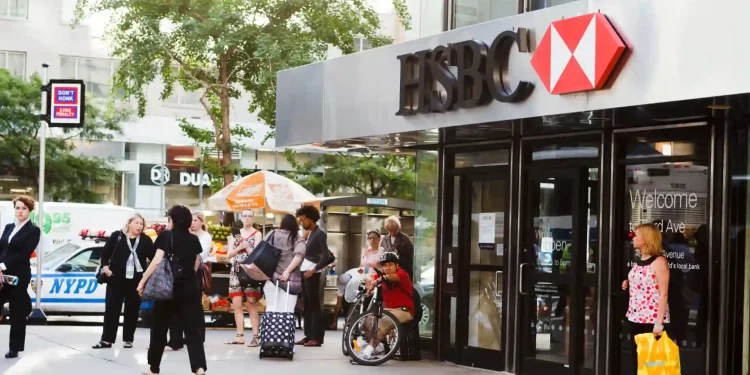Although the market to be exited is comparatively small, it became the talk of the town due to the pressures on HSBC from its investors once a bank with a global foothold alters its portfolio to satisfy the demands of its investors and increase returns.
HSBC is planning for an exit from almost 20%, i.e., one out of five countries it operates in, to double down on its Asian businesses. The newly appointed Chief Executive Officer Georges Elhedery told the news outlet in his first public interview.
This shuffling announcement has been going on for the past two years and would lead to a complete sale or a part of its businesses in Russia, Canada, France, and Greece.
The British Bank is facing significant pressure from Ping An Insurance, the bank’s largest shareholder, with a stake of 8.3% worth around $10.3 billion. They want HSBC to prioritise its money-making Asian business, which accounts for 78% of the group’s profit. This can lead to the bank withdrawing from 12 countries by selling or streamlining their businesses.
Globally, this move garnered significant attention from market analysts. Although the market to be exited is comparatively small, it became the talk of the town due to the pressures on HSBC from its investors once a bank with a global foothold alters its portfolio to satisfy the demands of its investors and increase returns.
The published reports do not contain a breakdown of revenue from each country, thus making it problematic to identify which country is underperforming and will be written off.
As per estimations from experts, the Latin American and European businesses could be the ones to be rounded off. Earlier, the European market closed 2022 at a net loss due to the restructuring and costs at its headquarters in that region. Latin America accounts for less than 5% of the group’s profit.
Elhedery mentioned that some of their markets are comparatively laggard than others. Those businesses are not that significant to change the portfolio of the group’s business. As they review these markets and work towards the execution of their plans, the smaller markets are expected to contribute towards the shift to Asia. He has not yet commented on which markets are under scrutiny or the period for the transition.
But Elhedery did disclose that Mexico is surely not under review. This completely silenced all the rumours amongst investors and analysts about the bank’s future in that country.
Mexico has hugely benefited from the US-Mexico-Canada trade agreement and the China Plus One strategy. They have boosted significant growth in the Mexican economy.
A veteran banker commented that almost 70% of client acquisition in the retail business comes from the employees of the MNCs that HSBC profits from in Mexico. The Mexican market has significantly contributed to the wholesale business, keeping it out of the scrutiny lists.
Larger deals battle more significant problems
In the bank’s annual shareholders meeting on May 5, Ping An was the only big shareholder putting pressure on the bank to regularly announce the developments of the separation between the Asian and Western markets.
The lack of support from other investors for Ping An’s proposal of a bank split has given Chief Executive Noel Quinn, Mark Tucker, the chairman, and the newly appointed CEO Elhedery some extra time to work towards increasing the profits on their will.
On April 14, the bank said that after an interest rate hike, the sale of its retail business in France could be jeopardised as this has increased the capital requirement to receive regulatory approval for My Money, a Cerberus-backed purchaser. This minimal $1.10 (1 Euro) deal can realise a $2.3 billion loss for HSBC if the deal doesn’t go through.
Another delayed larger deal is the sale of HSBC’s Canada unit for $10 billion. This has been pushed into next year due to barriers in the transfer of systems to the purchaser, Royal Bank of Canada.
Susannah Streeter, the head of money and markets at Hargreaves Lansdown, said that in the shorter term if the Canadian and French deal don’t monetise, it could alter the workings of an Asian shift.
Elhedery has said that apart from the shift, the present challenge tends to be maintaining revenue growth amidst the central bank’s interest rate hikes.
HSBC is focusing on increasing its income from fee-based products and services. Its major emphasis is on the Chinese and Hong Kong economies, as they open up after removing the Covid-19 restrictions.


















